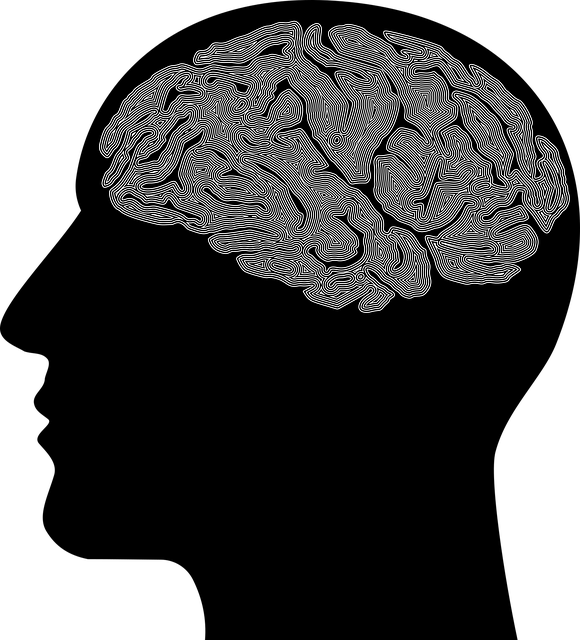Mental wellness is a critical aspect of overall health, significantly influencing daily life and relationships. Westminster Pain Management Therapy recognizes this connection, offering holistic treatments that address both physical and mental well-being. They provide coaching programs tailored to individual needs, incorporating evidence-based techniques like cognitive-behavioral therapy (CBT) and mindfulness exercises. These programs foster self-awareness, build resilience, and improve coping strategies to manage stress, anxiety, and depression. Through cultural competency training and advocacy, they empower clients to navigate systemic issues and break down stigma. Evaluating their success involves assessing reductions in pain levels and improvements in mental wellness indicators, alongside community outreach initiatives that promote inclusivity.
Mental wellness coaching programs have emerged as powerful tools in promoting overall health. This article delves into the development of such programs, focusing on understanding mental wellness and its impact on physical well-being. We explore the role of coaching in fostering mental wellbeing, designing tailored programs for specific needs, and integrating evidence-based practices. Furthermore, we discuss measuring success and evaluating the effectiveness of Westminster Pain Management Therapy programs, highlighting their crucial role in holistic healthcare.
- Understanding Mental Wellness and Its Impact on Overall Health
- The Role of Coaching in Promoting Mental Wellbeing
- Designing Effective Coaching Programs for Specific Needs
- Integrating Evidence-Based Practices into Coaching Sessions
- Measuring Success and Evaluating the Impact of Westminster Pain Management Therapy Programs
Understanding Mental Wellness and Its Impact on Overall Health

Mental wellness is a vital aspect of overall health and well-being, encompassing not just the absence of mental illness but also emotional, psychological, and social stability. It significantly influences an individual’s daily functioning, relationships, and quality of life. Recognizing and addressing mental wellness issues early on is crucial for preventing more severe consequences, such as chronic stress, physical health problems, and even substance abuse. Westminster Pain Management Therapy understands the intricate link between mental and physical health, emphasizing holistic treatment approaches that consider both realms.
The impact of poor mental wellness can be far-reaching, affecting an individual’s ability to cope with daily challenges, maintain healthy relationships, and achieve personal goals. Stigma surrounding mental illness remains a significant barrier to seeking help; thus, Mental Illness Stigma Reduction Efforts play a critical role in fostering understanding and empathy. Building Empathy and utilizing Emotional Well-being Promotion Techniques can create supportive environments, encouraging individuals to prioritize their mental health. Through these strategies, people can develop resilience, enhance coping mechanisms, and lead more fulfilling lives.
The Role of Coaching in Promoting Mental Wellbeing

Coaching has emerged as a powerful tool in promoting mental wellbeing, offering a unique and personalized approach to supporting individuals’ mental health journeys. Mental wellness coaching programs provide a safe space for clients to explore their thoughts, emotions, and behaviors, enabling them to develop strategies for managing stress, anxiety, and other mental health challenges. Through active listening and evidence-based techniques, coaches help clients gain insights into their mental processes, fostering self-awareness and resilience.
At Westminster Pain Management Therapy, we recognize the importance of addressing not just physical pain but also the underlying emotional and psychological aspects that contribute to overall well-being. Our coaching programs focus on building coping mechanisms tailored to each individual’s needs, promoting Anxiety Relief and enhancing Mental Health Awareness. By empowering clients with practical tools and techniques, we enable them to navigate life’s challenges more effectively, fostering a sense of calm and improved mental flexibility.
Designing Effective Coaching Programs for Specific Needs

When designing effective coaching programs for mental wellness, it’s crucial to tailor interventions to specific needs. This involves assessing individual or group dynamics, cultural backgrounds, and unique challenges related to their mental health journey. For instance, a program focusing on stress management might incorporate mindfulness techniques and relaxation exercises, especially beneficial for individuals dealing with chronic pain, as explored in Westminster Pain Management Therapy.
Cultural competency training is essential, ensuring coaches understand the diverse range of clients they may serve. This includes recognizing and incorporating coping skills that resonate with different cultural backgrounds, as part of comprehensive Healthcare Provider Cultural Competency Training. Additionally, programs should address broader systemic issues by integrating Mental Health Policy Analysis and Advocacy, empowering individuals to navigate and influence their mental health support systems.
Integrating Evidence-Based Practices into Coaching Sessions

Incorporating evidence-based practices is a cornerstone of effective mental wellness coaching programs, especially when considering strategies for managing conditions like anxiety and enhancing emotional intelligence. Techniques such as cognitive-behavioral therapy (CBT) have been rigorously tested and proven to offer substantial Anxiety Relief. Coaches can equip clients with tools to challenge negative thought patterns and replace them with healthier perspectives, thereby improving mood management over time.
Westminster Pain Management Therapy, for instance, has benefited greatly from integrating these practices. By combining CBT with mindfulness exercises, coaches help individuals develop emotional intelligence—the ability to recognize and manage one’s own emotions as well as understand the emotions of others. This holistic approach not only alleviates symptoms but also fosters a deeper sense of well-being, enabling clients to navigate life’s challenges more effectively.
Measuring Success and Evaluating the Impact of Westminster Pain Management Therapy Programs

Measuring success and evaluating impact are crucial aspects of Westminster Pain Management Therapy programs. To ascertain the effectiveness of these initiatives, a comprehensive framework must be established that considers both quantitative and qualitative metrics. The reduction in reported pain levels among participants is a primary indicator, measurable through standardized questionnaires and patient surveys. Additionally, tracking improvements in overall mental wellness, including reduced symptoms of anxiety and depression, can provide valuable insights into the program’s success.
Beyond individual outcomes, evaluating the broader societal impact of Westminster Pain Management Therapy programs is essential. Community outreach program implementation plays a significant role in breaking down the stigma surrounding mental illness. Through collaborative efforts with local communities, these therapies not only enhance emotional healing processes but also foster a more inclusive and supportive environment for those struggling with chronic pain and related mental health challenges.
Mental wellness coaching programs, such as those offered by Westminster Pain Management Therapy, play a pivotal role in enhancing overall well-being. By integrating evidence-based practices and tailoring sessions to specific needs, these programs prove effective in promoting mental health. Understanding the impact of mental wellness on physical health underscores the importance of coaching as a powerful tool for holistic improvement. Through measuring success and evaluating outcomes, Westminster Pain Management Therapy ensures its programs deliver tangible results, making mental wellness coaching a game-changer in modern healthcare.














